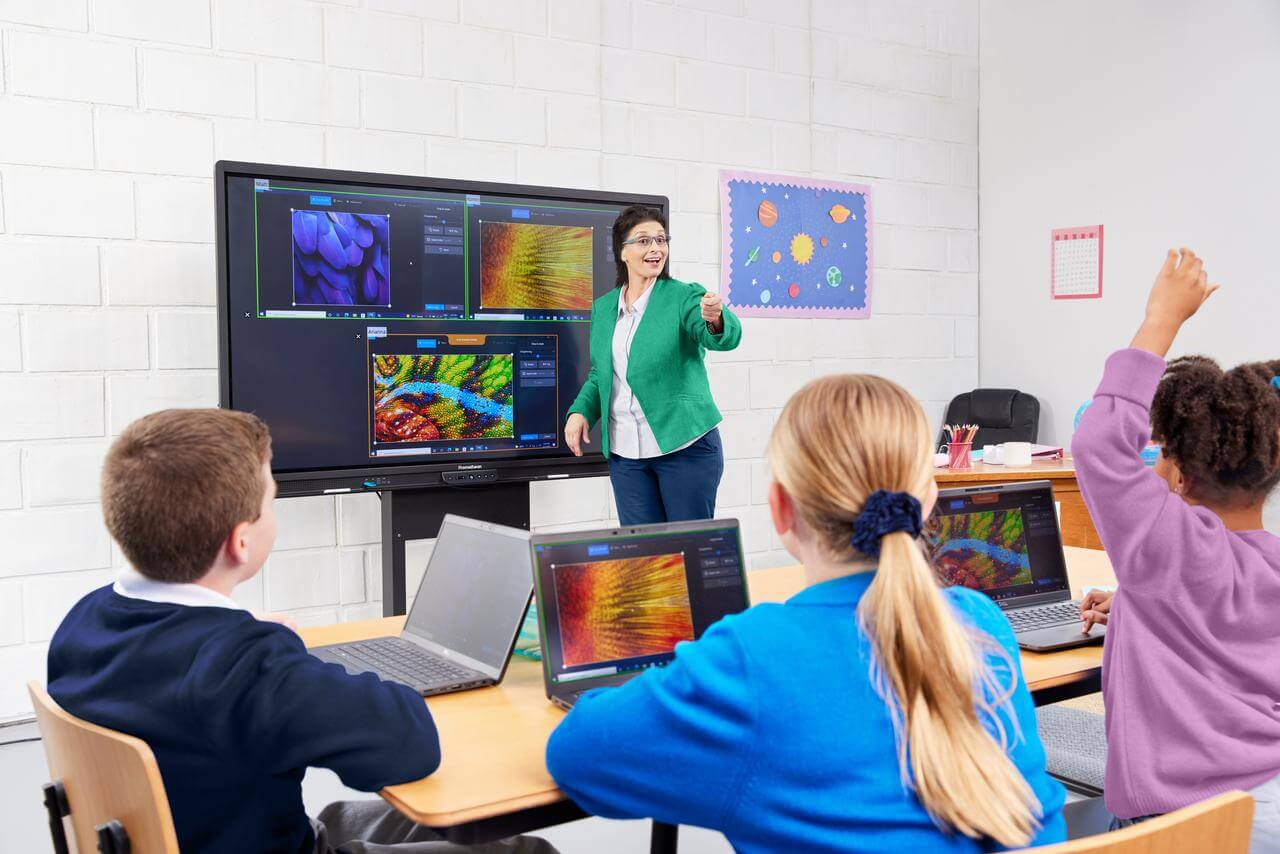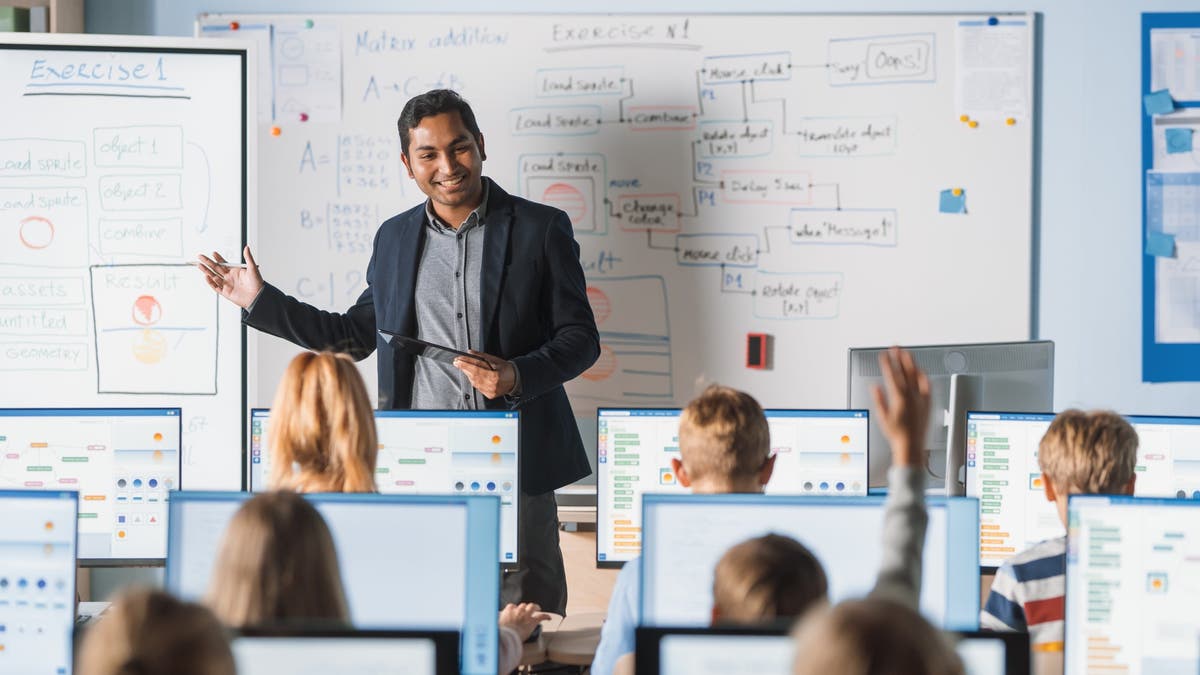Achieve Academic Success with Primary Science Tuition Singapore
Achieve Academic Success with Primary Science Tuition Singapore
Blog Article
Checking Out the Various Mentor Strategies in Main Scientific Research Education Today
The landscape of main scientific research education and learning is advancing, with numerous mentor strategies acquiring importance in modern class. Inquiry-based discovering, hands-on experiments, and the integration of technology are redefining exactly how educators engage young minds. Furthermore, collaborative methods and set apart direction are being used to accommodate the varied needs of students, boosting both interaction and understanding. As we check out these methodologies, questions develop about their efficiency and the implications for future academic techniques. What might these changes in approach mean for the future generation of learners?
Inquiry-Based Learning
Inquiry-Based Discovering (IBL) is an instructional technique that motivates students to check out scientific principles via doubting, examination, and hands-on trial and error. This method stresses the duty of pupils as active participants in their learning, advertising critical thinking and analytical skills. By involving with real-world questions, pupils end up being interested and determined, which enhances their understanding of clinical principles.
In IBL, educators work as facilitators, assisting pupils as they navigate their inquiries instead of providing info straight. This student-centered technique permits differentiation, accommodating numerous discovering paces and designs. Students create skills in developing theories, making experiments, and assessing data, which are critical for scientific literacy.
In addition, IBL promotes collaboration among pupils, encouraging them to share ideas and searchings for. This collective questions promotes social abilities and a sense of neighborhood within the class. The process of questions encourages durability, as pupils learn to accept failure as a tipping rock toward understanding.
Hands-On Experiments
Hands-on experiments are an essential element of reliable scientific research education, matching the concepts of inquiry-based learning. These experiments allow pupils to engage straight with scientific principles, promoting a deeper understanding through experiential discovering. By adjusting materials and observing results, young learners can comprehend abstract theories in concrete ways.
Such tasks advertise vital reasoning and analytical skills, as pupils assume end results, conduct experiments, and assess results. This process encourages them to ask inquiries, fine-tune their understanding, and create a clinical attitude. Furthermore, hands-on experiments can be tailored to diverse knowing styles, making certain that all students have the chance to involve meaningfully with the material.
Additionally, hands-on experiments often motivate cooperation among peers, advertising synergy and interaction abilities. Functioning in groups allows students to share concepts, go over searchings for, and learn from each other, which boosts their total educational experience.
Incorporating hands-on experiments right into the key science educational program not only enriches the finding out setting but likewise grows a long-lasting passion in scientific research. By actively taking part in their education and learning, pupils are a lot more likely to create an interest for scientific inquiry that prolongs past the classroom.

Technology Integration
Incorporating modern technology into main science education and learning has ended up being increasingly vital in fostering student interaction and boosting finding out results. Making use of electronic devices, such as interactive simulations, online labs, and instructional software program, gives trainees with chances to explore clinical principles in cutting-edge ways. These resources assist in a deeper understanding of complex subjects by enabling students to imagine and control variables that would be not practical in a conventional classroom setup.
In addition, technology integration encourages individualized finding out experiences. Pupils can proceed at their own rate, reviewing challenging ideas with multimedia sources, which deal with different knowing designs. This flexibility not just sustains specific growth but also grows a sense of autonomy in learners.
In addition, technology functions as a bridge to real-world scientific research, connecting trainees with present research study and specialist contributions. Access to clinical journals and on-line data sources widens trainees' viewpoints on scientific questions and cultivates critical believing abilities.
Collaborative Learning
Joint knowing plays an essential duty in key scientific research education and learning by fostering team effort and interaction article abilities amongst students. This method motivates learners to work together, share expertise, and participate in analytic, which improves their understanding of scientific concepts. By joining group tasks, students discover to express their ideas, listen to varied viewpoints, and discuss solutions, every one of which are important skills in both scholastic and real-world contexts.

Research indicates that joint discovering can lead to raised motivation and engagement in scientific research subjects, as pupils discover enjoyment in shared experiences (primary science tuition Singapore). In addition, this approach prepares trainees for future collaborative endeavors, furnishing them with the skills required for effective synergy in college and expert settings. Inevitably, welcoming joint discovering in main scientific research education and learning can dramatically enrich the understanding experience and advertise a much deeper understanding of scientific inquiry
Distinguished Direction

Differentiated guideline can show up in different means, such as differing the content, processes, or products of learning. Instructors might make use of tiered tasks that offer differing degrees of complexity, enabling pupils to function at their corresponding readiness degrees. Furthermore, flexible grouping approaches a fantastic read can facilitate cooperation amongst students with different capacities, fostering peer knowing.
Analysis plays a critical function in this approach, as it notifies direction and aids teachers recognize each trainee's unique needs. Developmental evaluations, such as quizzes and monitorings, can direct instructors in readjusting their techniques to improve finding out outcomes. primary science tuition Singapore. Eventually, by implementing differentiated direction in key scientific research education and learning, instructors can cultivate an extra reliable and fair learning setting, equipping all trainees to reach their full possibility in understanding clinical phenomena
Verdict
In recap, the diverse teaching approaches in key science education and learning, including inquiry-based learning, hands-on experiments, innovation assimilation, collaborative discovering, and set apart instruction, collectively contribute to a more reliable knowing atmosphere. These approaches advertise important thinking, problem-solving abilities, and a deeper understanding of clinical concepts. By implementing these techniques, teachers can create engaging and helpful class that resolve the different needs of trainees, eventually promoting a long-lasting passion in scientific research and improving academic accomplishment.
Inquiry-Based Understanding (IBL) is a pedagogical method that motivates trainees to explore clinical ideas look at this web-site through wondering about, investigation, and hands-on trial and error.Collective learning plays a vital function in primary scientific research education by promoting synergy and interaction skills among pupils.Research indicates that joint learning can lead to increased motivation and interaction in scientific research topics, as students discover pleasure in common experiences.In cultivating a comprehensive knowing atmosphere, separated direction arises as a crucial approach to suit the diverse needs and capacities of students in key science education and learning. Inevitably, by executing separated instruction in main science education and learning, instructors can grow an extra efficient and fair learning atmosphere, empowering all trainees to reach their full capacity in understanding scientific phenomena.
Report this page